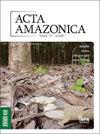长时间禁食后再摄食的短腹鲳幼鱼的生理反应
IF 0.8
4区 环境科学与生态学
Q4 ECOLOGY
引用次数: 0
摘要
对于许多鱼类来说,长时间的禁食是它们生命周期的一部分,因为在它们的自然栖息地中存在着食物数量和质量的季节性波动。这些动物在食物短缺期间使用内源性储备,并在资源再次可用时恢复。我们评估了长时间禁食对亚马逊河鼠短腹小毛猴(Piaractus brachypomus)身体储备利用、生长性能和肠道完整性指标的影响。我们将66只幼鱼(68.6±2.2 g)分布在11个鱼缸中。试验期为禁食30 d,再投喂45 d,对照组为正常投喂75 d,共5个重复(每缸6尾)。第11个水箱中的6个人被用于基线测量。每隔15 d检测一次血液指标、肌脂浓度、肝体和肠系膜脂肪指标、体生长指标和肠绒毛形态。空腹期间葡萄糖、甘油三酯、胆固醇、总蛋白、肠系膜脂肪和肝体指标、增重、特定生长率、条件因子和总生物量均显著低于对照组,但在复饲期间除体况外均恢复正常。与对照组相比,禁食期间肠绒毛的长度和周长显著降低。摄食方案允许短肢p.a rachypomus在禁食期间调动部分身体储备,但总的来说,重新摄食足以恢复其身体需求和生长性能,与连续摄食动物相适应。本文章由计算机程序翻译,如有差异,请以英文原文为准。
Physiological responses to long fasting followed by refeeding in juveniles of pirapitinga, Piaractus brachypomus
ABSTRACT For many fish species, prolonged fasting is part of their life cycle, as there are seasonal fluctuations in the quantity and quality of food available in their natural habitat. These animals use endogenous reserves during periods of food scarcity and recover when resources become available again. We evaluated the effect of a prolonged fasting period on indicators of body reserve use, growth performance and intestinal integrity of the Amazonian serrasalmid Piaractus brachypomus. We distributed 66 juveniles (68.6 ± 2.2 g) in 11 tanks. The treatment consisted of 30 days fasting followed by 45 days refeeding and the control of 75 days normal feeding with 5 replicates (one tank with six fish). The six individuals in the 11th tank were used for baseline measurements. Blood parameters, muscle lipid concentration, hepatosomatic and mesenteric fat indices, somatic growth parameters and intestinal villi morphology were measured every 15 days. Glucose, triglycerides, cholesterol, total protein, the mesenteric fat and hepatosomatic indices, weight gain, specific growth rate, condition factor and total biomass decreased significantly during fasting compared to the control, but all except body condition recovered during refeeding. The length and perimeter of the intestinal villi was significantly lower during fasting compared to the control. The feeding protocol allowed P. brachypomus to mobilize part of their body reserves during fasting, however, in general, refeeding was sufficient to restore their body needs and growth performance compatible with that of continuously fed animals.
求助全文
通过发布文献求助,成功后即可免费获取论文全文。
去求助
来源期刊

Acta Amazonica
PLANT SCIENCESECOLOGYZOO-ECOLOGY
CiteScore
1.70
自引率
0.00%
发文量
34
审稿时长
22 weeks
期刊介绍:
Acta Amzonica is a multidisciplinary, peer-reviewed, open access, free-of-charge scientific journal for research in and about the Amazon region, published since 1971 by the Instituto Nacional de Pesquisas da Amazônia - INPA, in Brazil.
The journal publishes quarterly issues containing articles and short communications in English across a broad range of disciplines, including Agronomy and Forestry, Animal Sciences and Fisheries, Biodiversity and Conservation, Biotechnology, Chemistry and Pharmacology, Environmental Sciences, Food Sciences, Geosciences, Health Sciences, Human and Social Sciences, and Materials Technology.
 求助内容:
求助内容: 应助结果提醒方式:
应助结果提醒方式:


